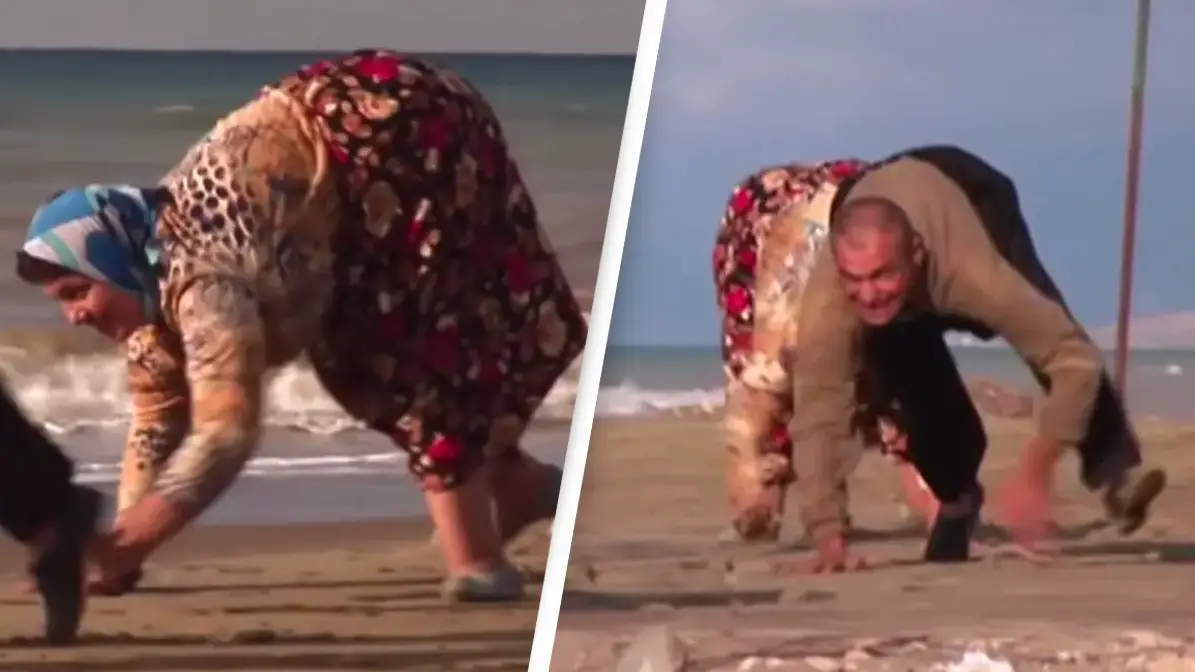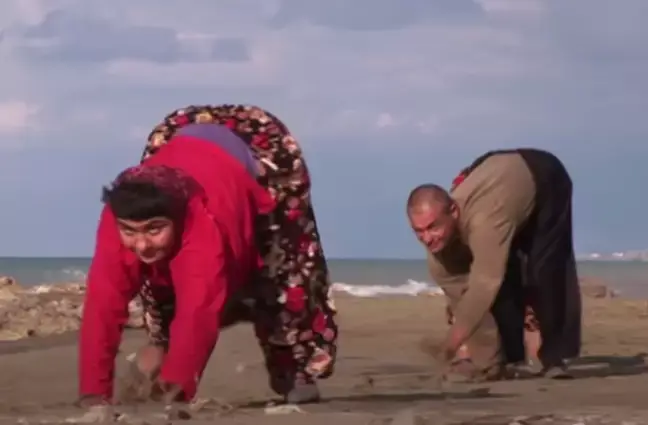
Scientists were baffled for years by a family in Turkey who were the subject of a documentary The Family That Walks On All Fours.
The Ulas family first attracted the attention of the scientific community after Turkish scientists wrote a medical paper about them and interest soon grew.
Evolutionary psychologist professor Nicholas Humphrey wanted to learn more about the family and discovered that of 18 children born into the Ulas family, six of them had a 'unique disability' which resulted in them walking on all fours.
Advert
While the Turkish scientists thought that the family had 'devolved', professor Humphrey found that conclusion to be 'deeply insulting' and 'scientifically irresponsible', saying as much in a 2006 BBC documentary.
Instead he set about trying to find some other answer than the reversal of the evolution process localized within one family in Turkey.
Neurological scans showed that the middle of the cerebellum appeared to be 'shrunk', but that provided no conclusive answers as people with smaller or even no cerebellums could still walk upright.

Fossil experts in New York analyzed the way they walked on all fours, finding that it was not at all consistent with the way evolutionary ancestors did, while a team at Liverpool University found that their skeletons were different to other humans.
Scientists appeared stumped as to what exactly was the cause for all of this as they could make observations but the answer to the question of why this was happening eluded them.
When he returned to visit the Ulas family again, professor Humphrey found that their children could now walk upright after being given help from a physiotherapist and equipment.
It wasn't until years later that a team of Danish scientists finally found the answer as to why members of the family were walking on all fours.

In 2014, scientists from Aarhus University found that the cause was something called Cerebellar Ataxia, Mental Retardation and Dysequilibrium Syndrome (CAMRQ).
According to Science Nordic, CAMRQ is a very rare syndrome that derives from an incredibly rare mutation which prevents proteins from distributing molecules of fat properly.
That results in defective nerve cells, brain damage and loss of balance, which would explain why the family walked on all fours as their balance was not good enough to walk upright.
The scientists were able to recreate the cell mutation and work out what the effect was, finding that the brain's balance control didn't properly develop and hence the Ulas family walked on all fours to compensate for this lack of something pretty much all of us take for granted.
Topics: Science, Health, World News